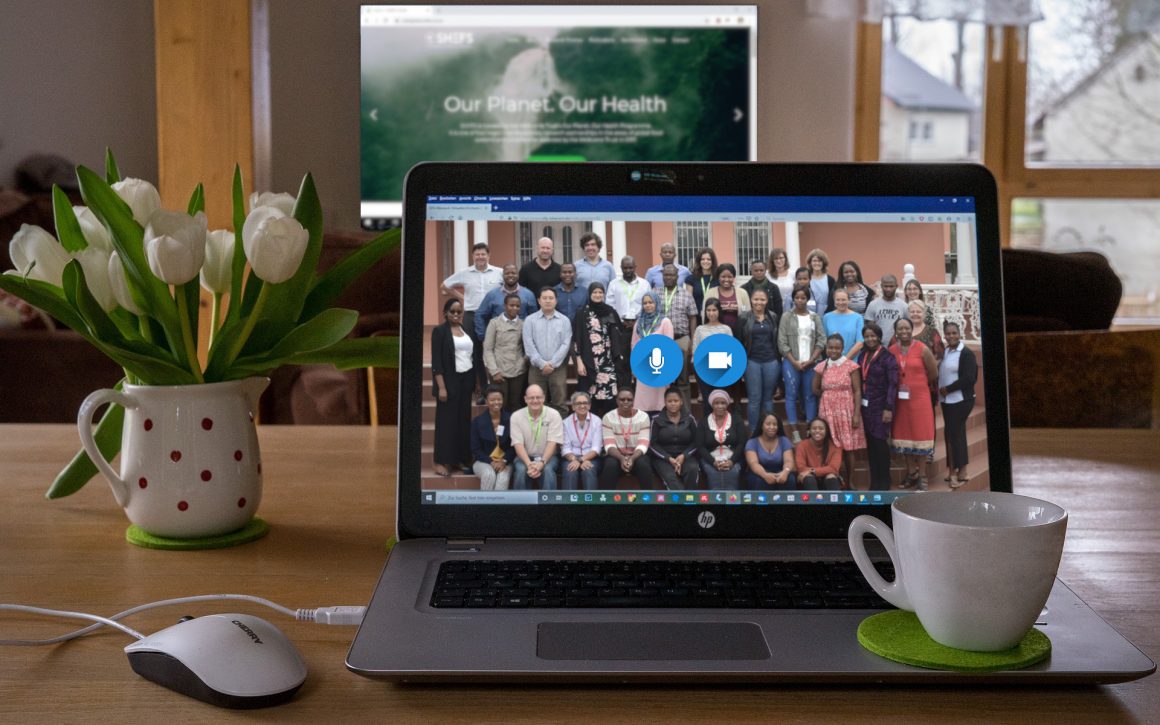SHEFS Hosts Successful Large Virtual Conference During COVID-19 Lockdown
The onset of COVID-19 has prompted the re-thinking of how we operate as individuals, communities, academics and practitioners on a global scale. The global pandemic has transformed our lives, and facilitated a process of deep introspection and re-imagination of how we live and work on a daily basis. The Sustainable and Healthy Food Systems (SHEFS) programme, funded by the Wellcome Trust’s Our Planet, Our Health Programme, is an international and interdisciplinary research partnership which aims to influence policies towards more sustainable food systems, with enhanced social, environmental and health outcomes. SHEFS have been actively contributing to sustainable research not only by conducting high value research studies in three continents, but also by hosting their annual meetings using virtual tools.
On 30 and 31 March 2020, SHEFS hosted their Bi-Annual Meeting via Virtual Conference linking in 73 participants from partner institutions based in South Africa, United Kingdom and India. Although this was the fourth time the broader SHEFS team met to discuss programme, research plans and outputs, it was the first time the conference was held completely virtually, with all members joining in as individuals, from their respective homes. The first conference was held in London, UK where members from South Africa flew in to join the meeting. The second, was held in Durban, South Africa, where members from India and UK flew in. However, in October 2019, SHEFS made the decision to host the meeting more sustainably by holding the conference virtually, where participants in each country site joined a Virtual Conference in groups. SHEFS’ foresight conducting a successful virtual meeting in 2019, helped to reduce their carbon footprint and save global resources that otherwise would have been used through a face-to-face meeting. It also set the stage for their readiness for continued collaboration during the current COVID-19 pandemic. Thus, although the March 2020 conference was meant to be conducted in the same way as the previous one, due to the COVID-19 Lockdown being implemented in each country at the time the third meeting was scheduled to take place, all participants linked in as individuals, via the Zoom platform.
Planning for the meeting was done by the SHEFS Early Career Researchers across the three country sites, and included numerous Zoom meetings, preparation of meeting documents and drafting of an ambitious Agenda for the Virtual Conference. The planning resulted in the inclusion of multiple opportunities for engagement across countries, namely; pre-conference ‘journal club discussions’ where researchers met virtually to discussion publications; ‘feedback workshops’ where researchers received inputs into specific aspects of their studies prior to the conference; and ‘presenter of another team members output’ where members of SHEFS discussed the research of another member and presented the outputs to the broader team during the virtual conference. During the actual conference, online presentations were seamlessly delivered, and the virtual conference also successfully included breakaway discussions, which allowed smaller groups of up to five participants to hold deep conversations about particular topics, before effortlessly returning into the main virtual room. Like the previous conference in 2019, the March 2020 meeting not only reduced its ecological footprint in terms of travel, but it also cut logistical costs associated with hosting large groups or people.
Although some members experienced intermittent challenges with internet connections, positive feedback was received from attendees and there was a unanimous feeling of achievement of the aims of the conference, despite the fact that there was no physical contact among attendees. While the presence of COVID-19 pandemic created a sense of uncertainty around health, socio-economics and general well-well-being amongst participants, it equally brought the focus of discussions to opportunities of where the research sector can contribute positivity to reducing the long-term effects of the coronavirus on the world. In addition, participants reflected on possible impacts of the COVID-19 outbreak on research results for studies that had partially collected data, as well as the impact on the timelines on research activities. The SHEFS Bi-Annual Virtual Conference clearly demonstrated the potential to harness global virtual connectedness, to achieve climate and sustainability goals.
For more information, please contact the local SHEFS Coordinator at the following details:
South Africa: Rashieda Davids, qnivqfe@hxma.np.mn
India: Nikhil SV, avxuvy.fi@cusv.bet or Ikshaku Bezbaroa, vxfunxh.ormonebn@ngerr.bet
United Kingdom: Kirsten Dawes, Xvefgra.Qnjrf@yfugz.np.hx

